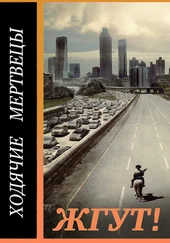Leroy Scott - The Walking Delegate
Здесь есть возможность читать онлайн «Leroy Scott - The Walking Delegate» — ознакомительный отрывок электронной книги совершенно бесплатно, а после прочтения отрывка купить полную версию. В некоторых случаях можно слушать аудио, скачать через торрент в формате fb2 и присутствует краткое содержание. Жанр: foreign_prose, на английском языке. Описание произведения, (предисловие) а так же отзывы посетителей доступны на портале библиотеки ЛибКат.
- Название:The Walking Delegate
- Автор:
- Жанр:
- Год:неизвестен
- ISBN:нет данных
- Рейтинг книги:4 / 5. Голосов: 1
-
Избранное:Добавить в избранное
- Отзывы:
-
Ваша оценка:
- 80
- 1
- 2
- 3
- 4
- 5
The Walking Delegate: краткое содержание, описание и аннотация
Предлагаем к чтению аннотацию, описание, краткое содержание или предисловие (зависит от того, что написал сам автор книги «The Walking Delegate»). Если вы не нашли необходимую информацию о книге — напишите в комментариях, мы постараемся отыскать её.
The Walking Delegate — читать онлайн ознакомительный отрывок
Ниже представлен текст книги, разбитый по страницам. Система сохранения места последней прочитанной страницы, позволяет с удобством читать онлайн бесплатно книгу «The Walking Delegate», без необходимости каждый раз заново искать на чём Вы остановились. Поставьте закладку, и сможете в любой момент перейти на страницу, на которой закончили чтение.
Интервал:
Закладка:
Scott Leroy
The Walking Delegate
Chapter I
ON THE ST. ETIENNE HOTEL
The St. Etienne Hotel would some day be as bulky and as garishly magnificent as four million dollars could make it. Now it was only a steel framework rearing itself into the center of the overhead grayness – a black pier supporting the grimy arch of heaven.
Up on its loosely-planked twenty-first story stood Mr. Driscoll, watching his men at work. A raw February wind scraped slowly under the dirty clouds, which soiled the whole sky, and with a leisurely content thrust itself into his office-tendered flesh. He shivered, and at times, to throw off the chill, he paced across the pine boards, carefully going around the gaps his men were wont to leap. And now and then his eyes wandered from his lofty platform. On his right, below, there were roofs; beyond, a dull bar of water; beyond, more roofs: on his left there were roofs; a dull bar of water; more roofs: and all around the jagged wilderness of house-tops reached away and away till it faded into the complete envelopment of a smudgy haze. Once Mr. Driscoll caught hold of the head of a column and leaned out above the street; over its dizzy bottom erratically shifted dark specks – hats. He drew back with a shiver with which the February wind had nothing to do.
It was a principle with Mr. Driscoll, of Driscoll & Co., contractors for steel bridges and steel frames of buildings, that you should not show approval of your workmen's work. "Give 'em a smile and they'll do ten per cent. less and ask ten per cent. more." So as he now watched his men, one hand in his overcoat pocket, one on his soft felt hat, he did not smile. It was singularly easy for him not to smile. Balanced on his short, round body he had a round head with a rim of reddish-gray hair, and with a purplish face that had protruding lips which sagged at each corner, and protruding eyes whose lids blinked so sharply you seemed to hear their click. So much nature had done to help him adhere to his principle. And he, in turn, had added to his natural endowment by growing mutton-chops. Long ago someone had probably expressed to him a detestation of side-whiskers, and he of course had begun forthwith to shave only his chin.
His men were setting twenty-five foot steel columns into place, – the gang his eyes were now on, moving actively about a great crane, and the gang about the great crane at the building's other end. Their coats were buttoned to their chins to keep out the February wind; their hands were in big, shiny gloves; their blue and brown overalls, from the handling of painted iron, had the surface and polish of leather. They were all in the freshness of their manhood – lean, and keen, and full of spirit – vividly fit. Their work explained their fitness; it was a natural civil service examination that barred all but the active and the daring.
And yet, though he did not smile, Mr. Driscoll was cuddled by satisfaction as he stood on the great platform just under the sky and watched the brown men at work. He had had a deal of trouble during the past three years – accidents, poor workmen, delays due to strikes over inconsequential matters – all of which had severely taxed his profits and his profanity. So the smoothness with which this, his greatest job, progressed was his especial joy. In his heart he credited this smoothness to the brown young foreman who had just come back to his side – but he didn't tell Keating so.
"The riveters are keeping right on our heels," said Tom. "Would you like to go down and have a look at 'em?"
"No," said Mr. Driscoll shortly.
The foreman shrugged his shoulders slightly, and joined the gang Mr. Driscoll was watching. In the year he had worked for Mr. Driscoll he had learned to be philosophic over that gentleman's gruffness: he didn't like the man, so why should he mind his words?
The men had fastened a sling about a twenty-five foot column and to this had attached the hook of the pulley. The seventy-foot arm of the crane now slowly rose and drew after it the column, dangling vertically. Directed by the signals of Tom's right hand the column sank with precision to its appointed place at one corner of the building. It was quickly fastened to the head of the column beneath it with four bolts. Later the riveters, whose hammers were now maintaining a terrific rattle two floors below, would replace the four bolts by four rows of rivets.
"Get the sling, Pete," ordered Tom.
At this a loosely-jointed man threw off his slouch hat, encircled the column with his arms, and mounted with little springs. Near its top he locked his legs around the column, and, thus supported and working with both hands, he unfastened the rope from the pulley hook and the column, and threw it below. He then stepped into the hook of the pulley, swung through the air to the flooring, picked up his hat and slapped it against his leg.
Sometimes Mr. Driscoll forgot his principle. While Pete was nonchalantly loosening the sling, leaning out over the street, nothing between him and the pavement but the grip of his legs, there was something very like a look of admiration in Mr. Driscoll's aggravating eyes. He moved over to Pete just as the latter was pulling on his slouch hat.
"I get a shiver every time I see a man do that," he said.
"That? That's nothin'," said Pete. "I'd a heap ruther do that than work down in the street. Down in the street, why, who knows when a brick's agoin' to fall on your head!"
"Um!" Mr. Driscoll remembered himself and his eyes clicked. He turned from Pete, and called to the young foreman: "I'll look at the riveters now."
"All right. Oh, Barry!"
There came toward Tom a little, stocky man, commonly known as "Rivet Head." Someone had noted the likeness of his cranium to a newly-hammered rivet, and the nickname had stuck.
"Get the other four columns up out of the street before setting any more," Tom ordered, and then walked with Mr. Driscoll to where the head of a ladder stuck up through the flooring.
Pete, with a sour look, watched Mr. Driscoll's round body awkwardly disappear down the ladder.
"Boys, if I was a preacher, I know how I'd run my business," he remarked.
"How, Pete?" queried one of the gang.
"I'd stand up Driscoll in the middle o' the road to hell, then knock off workin' forever. When they seen him standin' there every blamed sinner'd turn back with a yell an' stretch their legs for the other road."
"I wonder if Tom'll speak to him about them scabs," said another man, with a scowl at a couple of men working along the building's edge.
"That ain't Tom's business, Bill," answered Pete. "It's Rivet Head's. Tom don't like Driscoll any more'n the rest of us do, an' he ain't goin' to say any more to him'n he has to."
"Tom ought to call him down, anyhow," Bill declared.
"You let Foley do that," put in Jake Henderson, a big fellow with a stubbly face and a scar across his nose.
"An' let him peel off a little graft!" sneered Bill.
"Close yer face!" growled Jake.
"Come on there, boys, an' get that crane around!" shouted Barry.
Pete, Bill, and Jake sprang to the wooden lever that extended from the base of the ninety-foot mast; and they threw their weight against the bar, bending it as a bow. The crane slowly turned on its bearings to the desired position. Barry, the "pusher" (under foreman), waved his outstretched hand. The signalman, whose eyes had been alert for this movement, pulled a rope; a bell rang in the ears of an engineer, twenty-one floors below. The big boom slowly came down to a horizontal position, its outer end twenty feet clear of the building's edge. Another signal, and the heavy iron pulley began to descend to the street.
After the pulley had started to slide down its rope there was little for the men to do till it had climbed back up the rope with its burden of steel. Pete – who was usually addressed as "Pig Iron," perhaps for the reason that he claimed to be from Pittsburg – settled back at his ease among the gang, his back against a pile of columns, his legs stretched out.
Читать дальшеИнтервал:
Закладка:
Похожие книги на «The Walking Delegate»
Представляем Вашему вниманию похожие книги на «The Walking Delegate» списком для выбора. Мы отобрали схожую по названию и смыслу литературу в надежде предоставить читателям больше вариантов отыскать новые, интересные, ещё непрочитанные произведения.
Обсуждение, отзывы о книге «The Walking Delegate» и просто собственные мнения читателей. Оставьте ваши комментарии, напишите, что Вы думаете о произведении, его смысле или главных героях. Укажите что конкретно понравилось, а что нет, и почему Вы так считаете.












